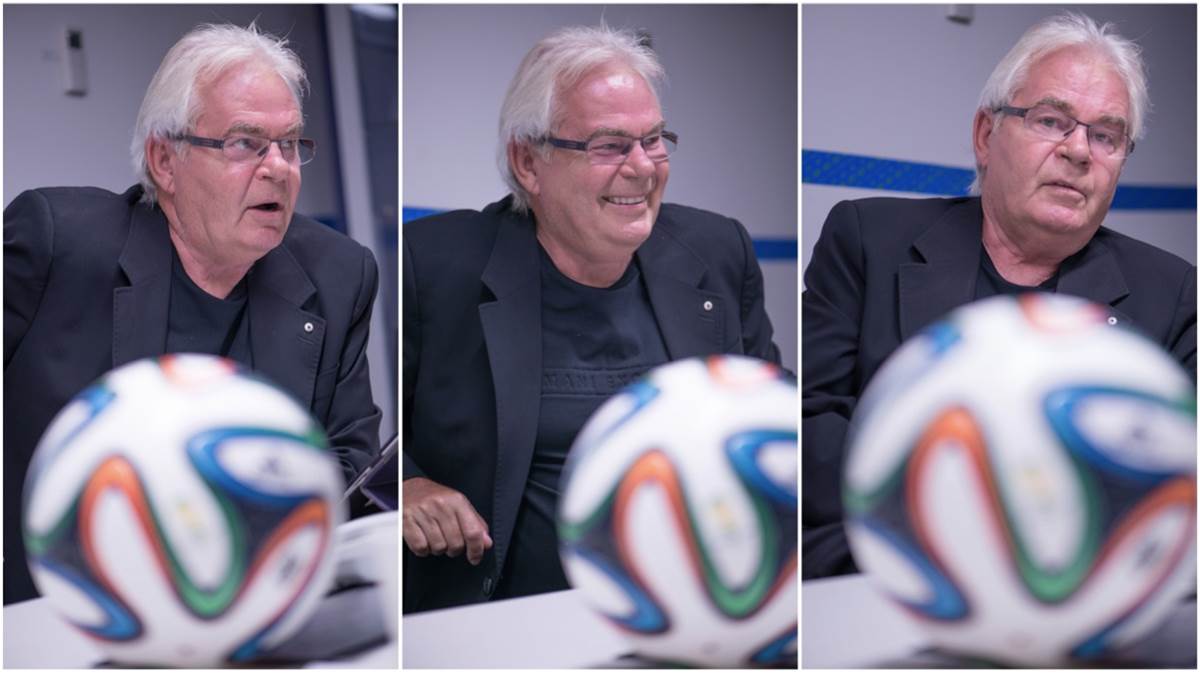For Les Murray, there was much more to football than 22 players running about a pitch. It was gateway to diversity, to inclusiveness, to acceptance. It was a gateway to a better Australia.
His passion for the sport was of course unmatched, and his determination to advance the game brought us to where we are now, with a national league and a TV deal worth tens of millions every year, with the Socceroos regularly reaching the World Cup, and A-League crowds to match or beat rugby league.
When Les started out at SBS, all of that was unimaginable.
His relentless commitment helped realise that, using his connections to reach a position of influence within FIFA, and his network at home to reach the powerbrokers and billionaires of Australia.
But the bigger picture for Les was at the other end of the pyramid – the people that football brought together in the stands and on the pitch…the cavalcade of cultures, the Babel’s terrace of languages and the joyful celebration of migrant, mongrel Australia.
He fought and he fought to bring football to the wider Australian public. For a generation, he WAS football – the one and only person you thought of when the sport was mentioned in this country. He was FourFourTwo’s first ever cover star…and to this day is still the only person to appear on our cover who was not a player or a coach.
He was football’s defender and its champion, its spiritual leader and its greatest worshipper.
 He honoured the heritage of every player with his meticulous pronunciation of their names, basked in their skills, and embraced every fan from every nation.
He honoured the heritage of every player with his meticulous pronunciation of their names, basked in their skills, and embraced every fan from every nation.
He revelled in Australia’s immigrant history and never forgot his own roots as a refugee on the run from oppression. For him, in a melting pot of migrants like Australia, football should be the natural national game.
Football for Les was the great equaliser. The chance for anyone from any country to make their mark and shine, no matter how far from home…and be hailed a hero by people whose only common tongue was the language of football.
Les saw the sport as the perfect way to expose modern Australia to the diverse cultures that had set up home on this wide brown sunburnt land and promote greater understanding (and tolerance) of each other in the process. No other sport could do that here.
And it was a mission that went on beyond his working career.
Even after retirement, in between trying to establish a new A-League club south of Sydney, he used his Twitter feed to defend the rights of refugees and deliver a message of multiculturalism, diversity and compassion.
Football is, in the term Les coined, the world game and football in Australia has always been in a unique position to reflect that.
As Bill Shankly said: “Some people think football is a matter of life and death. I assure you, it's much more serious than that.”
Les believed in football as a powerful tool for greater good, for social reform, for awareness and inclusion. A leveller for rich and poor and a catalyst for change. It was the hidden beauty of the beautiful game.
But as Les would also have doubtless added: It’s also a bloody good game to watch.
His legacy leaves the sport in this country in better health than it’s ever been, but one that still faces many challenges.
If you want to remember Les, if you want to honour him, carry his message of diversity, tolerance and inclusion…and let football create a better Australia, both on and off the pitch.
Related Articles

Leckie seals new marquee deal as Good, Maclaren head to Asia

Socceroo-in-waiting seals Championship deal













